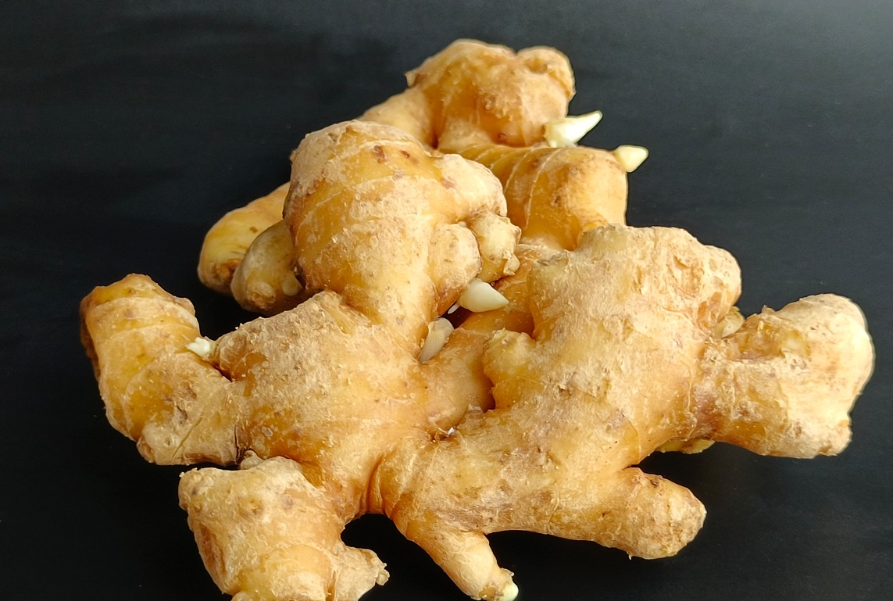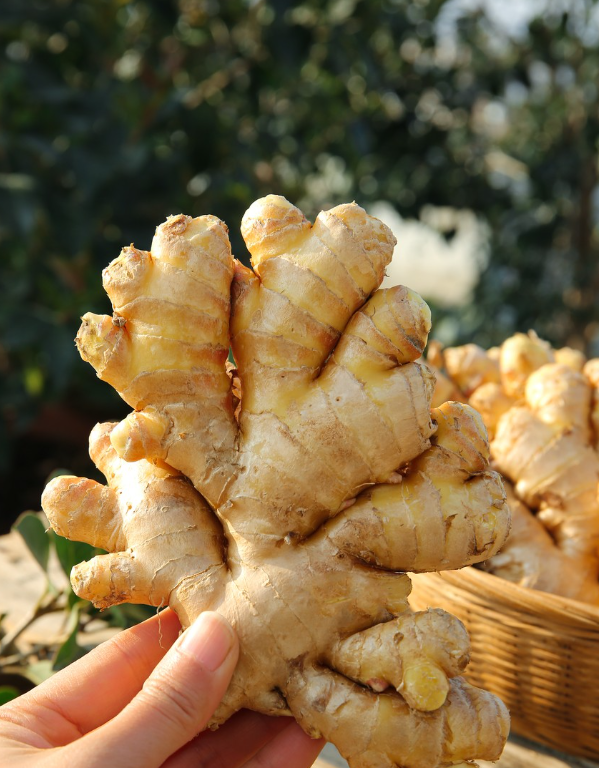
Fresh ginger (Zingiber officinale) is globally recognized not only for its culinary versatility but increasingly for its remarkable health-promoting properties. At the core of these benefits are its primary bioactive constituents, notably gingerol and shogaol, often collectively referred to as gingerols, along with the closely related compound curcumin analogues such as ginger yellow pigments. These components contribute to ginger’s potent antioxidant, anti-inflammatory, and immunomodulatory activities. Scientific research has isolated these compounds and detailed their molecular structures, elucidating their mechanisms in promoting human health.

Gingerol, the pungent phenol responsible for ginger’s distinctive flavor, exhibits multifaceted biological actions. Research indicates that gingerol interacts with inflammatory signaling pathways, such as nuclear factor-kappa B (NF-κB) and cyclooxygenase-2 (COX-2), leading to reduced production of pro-inflammatory mediators. This biochemical interaction underpins ginger’s efficacy in alleviating digestive discomfort, reducing nausea, and modulating immune responses.
While curcumin is more traditionally associated with turmeric, compounds structurally similar to curcumin in ginger demonstrate complementary roles in oxidative stress mitigation and immune enhancement. Such synergy fosters comprehensive health benefits relevant to functional food formulations.
Clinical studies spanning over two decades have validated ginger’s role in supporting gastrointestinal function. For instance, ingestion of standardized ginger extracts significantly improves gastric emptying and relief from dyspepsia symptoms, enhancing overall digestive efficiency. Additionally, ginger exhibits antiemetic properties highly valued in managing nausea related to pregnancy and chemotherapy.
From an immunological perspective, ginger’s bioactives stimulate cytokine production and natural killer cell activity, contributing to enhanced innate immunity. This effect has been corroborated in controlled trials that demonstrated symptom reduction in upper respiratory tract infections, positioning fresh ginger as a potent natural adjunct to conventional health protocols.
“In a randomized controlled trial published in the Journal of Medicinal Food (2021), participants consuming 2 grams of fresh ginger daily experienced a 35% reduction in inflammation markers compared to placebo, highlighting ginger’s robust anti-inflammatory potential.” — Dr. Emily Harris, PhD, Nutraceutical Research Institute

Optimizing fresh ginger intake requires an awareness of bioavailability and dietary compatibility. Combining ginger with healthy fats, such as olive oil or avocado, can enhance absorption of fat-soluble phytochemicals, maximizing physiological benefits. Similarly, co-administration with vitamin C-rich fruits like blackcurrants synergistically boosts antioxidant capacity.

| Dosage | Health Benefit | Consumption Suggestion |
|---|---|---|
| 500-1000 mg/day | Digestive aid, nausea relief | Fresh juice or tea infusion |
| 1-2 g/day | Immune system support, cold symptom alleviation | Incorporated in smoothies, functional food snacks |
| Up to 3 g/day | Anti-inflammatory effects | Supplement capsules with standardized extracts |
For B2B buyers and global procurement professionals, the source and quality of fresh ginger profoundly affect the efficacy and marketability of functional food products. Rigorous quality control ensures high gingerol content and minimal residues, meeting international food safety standards. Our company’s supply chain integrates advanced post-harvest processing and cold storage technologies, preserving bioactive integrity from farm to factory.
Partnering with trusted suppliers who provide consistent, high-grade fresh ginger enables manufacturers to develop superior functional foods, capitalizing on growing consumer demand for natural health solutions. Emphasizing transparent sourcing and scientifically validated health claims fosters enduring trust within the global health food community.